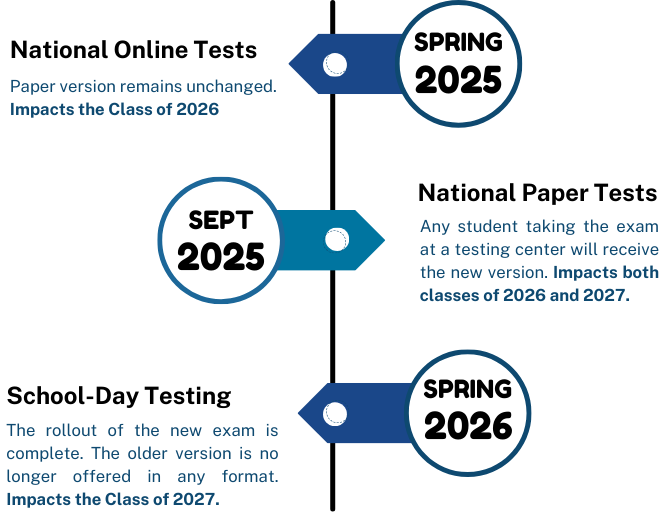
We all anticipated this moment. With the SAT undergoing significant changes and transitioning to a digital format, it was only a matter of time before the ACT followed suit. Earlier this year, the ACT began offering a digital version of the exam in select locations nationwide. This week, we received news from Janet Godwin, CEO of ACT, about additional changes that will be implemented in Spring 2025 for national online tests and in Spring 2026 for school-day testing. Here’s a closer look at what these changes entail and their implications for students preparing for the ACT.
Optional Science Section
The science section has always been a distinguishing feature of the ACT compared to the SAT, offering students the chance to showcase their scientific talents and skills. While the ACT will continue to include this section, it has now been made optional, similar to the writing section. According to the ACT, this change aims to provide greater flexibility, allowing students to decide whether they want to highlight their strengths in science.
Students will now have the option to take the ACT alone, the ACT with science, the ACT with writing, or the ACT with both science and writing. The composite score will still be on a scale of 1-36, but it will now be an average of the English, reading, and math scores.
A Shorter Test
Following the footsteps of the SAT, the ACT has reduced the length of the exam by up to one-third. Instead of being 3 hours long, the exam will now be only 2 hours. The goal behind this change is to help students avoid testing fatigue and have a more manageable testing experience. To achieve this, the exam has 44 fewer questions, and the passages in the reading and English sections have been shortened.
What’s Next?
These changes to the ACT reflect a broader trend towards more flexible and student-friendly testing options. By offering an optional science section and shortening the overall test length, the ACT aims to reduce stress and provide a more tailored testing experience for students. As these changes roll out, it will be crucial for students to stay informed and adapt their preparation strategies accordingly. With careful planning and the right resources, students can navigate these updates and perform their best on the ACT. Keep an eye on our upcoming blog posts to stay informed about any new updates to the ACT.

Interested in discussing the SAT or ACT testing with Nicholas LaPoma? Schedule your free consultation today!
